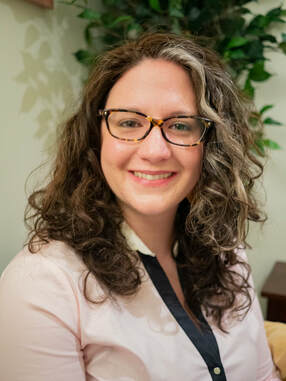So, Tell Me About Yourself
|
There are things that can be hard to talk about with friends, family, and loved ones. Or there might be some parts you talk about with some people and not others. But you can't see yourself fully if all your pieces are scattered, or if they never even see the light of day. It can be hard to show ourselves to people - to really be seen - but that's where a lot of problems and suffering in life come from, that feeling of hiding and being alone. I once heard therapists described not as healers in themselves but people who create the space to help others find their way back to themselves. That's always resonated with me. I try to be an open, warm, accepting, knowledgeable, and non-judgmental guide to help you navigate the waters of what you're going through so you can find your way back to yourself and/or find a new way forward. |
Special Interests
I have a clinical and research interest in alternative gender identities and sexualities, and I am registered as a Kink- and Poly-Knowledgeable therapist on the Kink And Poly Aware Professionals Directory by the National Coalition for Sexual Freedom.
My doctoral dissertation examined the relationship between sexuality and personality, specifically looking at the link between levels of sexual dominance/submissiveness and levels of dominance/submissiveness in the workplace for individuals who identified as part of the BDSM community.
As part of my doctoral internship, I worked with trans*, non-binary, and genderqueer adolescents and their families at the Mount Sinai Adolescent Health Center, some of whom were in the process of receiving hormones as part of their gender transition. Regardless of transition status, I provided these individuals a space to explore their gender and self-identity, to help them find a way of thinking about themselves that fit them.
My doctoral dissertation examined the relationship between sexuality and personality, specifically looking at the link between levels of sexual dominance/submissiveness and levels of dominance/submissiveness in the workplace for individuals who identified as part of the BDSM community.
As part of my doctoral internship, I worked with trans*, non-binary, and genderqueer adolescents and their families at the Mount Sinai Adolescent Health Center, some of whom were in the process of receiving hormones as part of their gender transition. Regardless of transition status, I provided these individuals a space to explore their gender and self-identity, to help them find a way of thinking about themselves that fit them.
Technical Details (If You're Interested)
Training
I earned my doctorate degree (Psy.D.) in Clinical Psychology from Ferkauf Graduate School of Yeshiva University. During my training, I worked everywhere from an inpatient psychiatric hospital to outpatient clinics to community centers to colleges, from upstate New York to Long Island to the Bronx and Manhattan. I've worked with everyone from 7-year-olds to older adults in their 70s and 80s, including teens to young adults and adults. I've worked with people dealing with pretty much everything you can think of - depression, generalized anxiety, social anxiety, panic disorder, ADHD, eating disorders, substance abuse/recovery, adult children of substance abusers, gender identity/transitioning, the coming out process, relationship problems, sexual issues, friendship conflicts, family conflict, lack of assertiveness, low self-esteem, trauma histories, anger management, grief/loss...trust me, you will not surprise me. I got this.
I completed my internship at the Mount Sinai Adolescent Health Center, working with children, teens, older adolescents, and families. After graduating, I was accepted to a 2-year post-doctoral fellowship at the William Alanson White Institute, working with older adolescents and adults from an interpersonal psychodynamic perspective. More on that below.
I completed my internship at the Mount Sinai Adolescent Health Center, working with children, teens, older adolescents, and families. After graduating, I was accepted to a 2-year post-doctoral fellowship at the William Alanson White Institute, working with older adolescents and adults from an interpersonal psychodynamic perspective. More on that below.
Theoretical Orientation/Approaches
Here come the fancy terms and acronyms. My clinical experience has been broad and comprehensive by design, but the bulk of my training has been in psychoanalytically-oriented psychodynamic therapy, with an emphasis on interpersonal/relational theory. Basically what this means is I give a lot of weight to the influence of your experiences in current and past relationships (parents/family, friends, and even the therapy relationship) on the way you learn to see yourself and interact with others. I help you explore these relationships and dynamics through our sessions to increase your insight into the way you come across to others and the patterns that you might be repeating without being aware.
I also have experience working in Cognitive Behavioral Therapy (CBT) and Dialectical Behavior Therapy (DBT) frameworks, and at times may draw on aspects of these therapies in our work to address things like mindfulness, emotion regulation, assertiveness, and self-judgment.
I also have experience working in Cognitive Behavioral Therapy (CBT) and Dialectical Behavior Therapy (DBT) frameworks, and at times may draw on aspects of these therapies in our work to address things like mindfulness, emotion regulation, assertiveness, and self-judgment.

